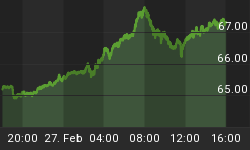A recent article says that Argentina, the world's largest lithium producer, will consider creating an OPEC model cartel for lithium in combination with Bolivia and Chile. Behind this is a view that between them, Argentina, Bolivia and Chile together will control the lithium market in the near future. Argentina is said to have about 10% of the world's lithium reserves, with Chile having about 25%, and Bolivia holding about 50% in the world's largest salt flat. A ton of Lithium currently is said to be worth about U.S.$6,000 - up from about U.S.$2,500 seven years ago. See 'Argentina, Bolivia, Chile to form OPEC model cartel on lithium' - reading time 2 minutes.
I see this as an interesting development in the context of 'country risk' - a topic I have been focusing on in the past several days. If an OPEC type lithium cartel is formed, could the next step in such a process be Lithium Industry Nationalization in the three countries - or as a minimum, a change in income tax laws in those countries that would see corporate income tax increases as a way to subsidize and increase in the standard of living of their populaces. I will be surprised if increased corporate income taxes are not on the agendas of many developing countries - the only question being one of timing. In a developing country it seems there always has to be a balance or 'tension' between the Governments of those countries acting in a manner so as to attract external capital investment, but at the same time keeping their respective populaces 'acceptably' happy - i.e. not pushed to demonstrations and rebellion.
Governments change over time, and from my perspective the operative word is the underlined 'but' in the previous paragraph. When you hear someone use 'but' in a sentence, disregard everything that was said before the 'but'. In simple terms, the value of all outstanding shares of a company is the present value of all its future expected after-tax free cash flows discounted to infinity. As a practical matter, at a 10% discount rate, really means for the next +/-25 years. 25 years is a long time, and I think a meaningful question is:
Are the equity markets (and stock analysts) factoring in country risk to an appropriate degree as they currently express their respective opinions with respect to the value of the listed securities of companies who principally operate in one or more of the developing countries? While I do not know the answer to this, and believe the analysts who do research reports on such companies would say they do - but do they really research and understand those countries government structures, politics, and economics at a level where they are capable of meaningfully opining on 'country risk'? They will, to a person, almost certainly tell you they do. However, I suggest that to be on the safe side 'country risk' is an area where - as an investor - you ought to seriously consider doing a lot of your own research in order to reach your own informed opinion.
Something to think seriously about, and to discuss with your Investment Adviser.















